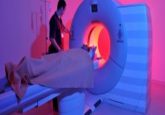First results from ProtecT trial in prostate cancer published
The first findings from the ProtecT trial, recently published in New England Journal of Medicine, indicate that active monitoring is as effective as surgery and radiotherapy, in terms of survival at 10 years in localized prostate cancer.
Led by researchers at the Universities of Oxford and Bristol (UK), ProtecT has demonstrated how all three of these therapy modalities result in similar, and very low, rates of death from prostate cancer. Surgery and radiotherapy reduce the risk of cancer progression over time compared with active monitoring, but are associated with more adverse effects.
“What we have learnt from this study so far is that prostate cancer detected by PSA blood test grows very slowly, and very few men die of it when followed up over a period of 10 years, – around 1% – irrespective of the treatment assigned. This is considerably lower than anticipated when we started the study,” commented chief investigator Freddie Hamdy (University of Oxford).
From 1999–2009, 82,429 UK-based men aged 50–69 years were tested for prostate cancer. Of this patient population, 1643 of those found to have localized prostate cancer agreed to be randomized to treatment with active monitoring (545), radical prostatectomy (553) or radical radiotherapy (545). These individuals were then followed-up by the researchers, who investigated mortality rates at 10 years, cancer progression and spread, and the impact of treatments.
At 10-year follow-up, survival from localized prostate cancer was high (approximately 99%) irrespective of the treatment assigned. In terms or disease progression, this was more than halved in patients who received surgery and radiotherapy, compared with active monitoring – one in five in the active monitoring group experienced progression, as opposed to less than one in ten in the surgery and radiotherapy groups.
Surgery and radiotherapy were associated with significant side effects, particularly in the first year after treatment. Some improvement of these was reported over 2–3 years, but after 6 years, twice as many men in the surgery group still experienced urine leakage and problems with their sex life, in comparison with those in the active monitoring and radiotherapy groups. Radiotherapy was associated with more bowel problems compared with surgery or active monitoring.
There was no notable impact on overall quality of life, including anxiety and depression, by any of the three treatments at any time.
“Interestingly, we saw that disease spread was reduced by half in men who were assigned to radical treatment, but no difference in survival outcomes with either surgery or radiotherapy, and no progression of the disease in three quarters of the men in the active monitoring treatment group, over the 10 years. We need to continue to study these men to find out whether prevention of cancer progression by surgery or radiotherapy leads to better cancer control and survival in the longer term,” co-investigator David Neal (University of Oxford) commented.
The findings of the study will play a key role in the decision to screen for prostate cancer, and are being used as part of a study investigating the effectiveness and cost-effectiveness of prostate-specific antigen testing for screening for prostate cancer.





